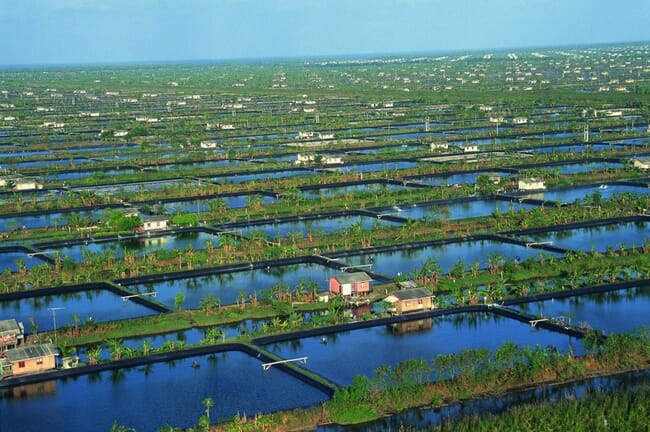
A recent panel discussion at The Economist’s World Ocean Summit Asia Pacific gave a de-brief on COP26 and the ocean – looking at how the conference addressed ocean conservation and industries. Though conference documents and statements mentioned the ocean frequently, Martin Koehring, head of the World Ocean Initiative and panel moderator, said that it’s difficult to tell if these pledges will be put into action.
This tension was keenly illustrated when the panellists discussed ocean industries and aquaculture – and their lack of representation at the COP’s Ocean Action Day. The World Ocean Initiative’s Nellie de Goguel noted that other COP conversations dominated the news cycle that day. Many ocean-related developments were buried under a tidal wave of other commitments. According to The Economist’s briefings editor Oliver Morton, the silence around aquaculture tends to follow the broader climate change narrative that is, “all about suffering and negative consequences.”

Morton told delegates that developing global aquaculture capacity could help oceans provide six times more sustainable food than it does today, but this achievement hasn’t become a central theme of our collective climate conversation. “There’s a huge opportunity to harness the ocean as a carbon sink,” he says, but this hasn’t been given a lot of airtime. In Morton’s view, the conversation is still around ocean risks – its capacity for remediation or adaptation hasn’t been mainstreamed.
Koehring largely agreed, saying that “for forests, the conversation is more about their capacity and how [planting forests] has a positive impact…It’s surprising that the ocean narrative hasn’t moved in that direction as much.” Koerhing then pivoted, asking whether the existing narrative could be changed: if the ocean could be seen as a source of solutions for climate change.
“Turning narratives around is like turning supertankers around,” Morton said. “It’s not something you undertake lightly.” He observed that many of the ocean-oriented climate solutions are seen as peripheral: they’re nice to have, but they aren’t essential in the climate fight. He noted that the global food conversation has been dominated by plant-based meat substitutes instead of sustainable aquaculture. Aquaculture presents a real opportunity and is a, “place where people could think more deeply about [food and climate impacts].” The challenge was bringing these views into the popular discourse.
Morton told listeners that the ocean – and its accompanying industries – need to be mainstreamed in other climate discussions. This might make more of a long-term impact on climate policy and ensure that climate opportunities like blue carbon and sustainable aquaculture are fully integrated in work packages. To illustrate, he referenced a quote that’s often associated with former US Secretary of State Colin Powell: “There’s no limit to what you can do as long as other people get the credit.” He argued that exclusively focusing on the ocean’s climate potential is self-limiting and self-defeating. It needs to be integrated in the world’s decarbonisation and climate efforts.
As the discussion continued, Morton noted that, “COPs are incredibly focused on emissions, it’s hard for adaptation to get it’s due regard.” This focus on emissions instead of adaptation has inadvertently side-lined the climate remediation potential of oceans – making them passive in the broader climate discussion.




